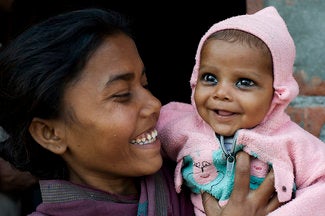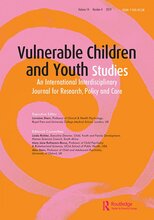

Displaying 91 - 100 of 699
Four Tamil Nadu kids, sold for Rs 62,000 by parents to a goat herder two years ago, were rescued on Monday.
Now, this data also shows a sharp increase in the number of child pornography cases from 2019, where only 103 cases were registered. In 2018, at the same time, the numbers were only 44
This video case study was developed as a part of the Transitioning Models of Care Assessment Tool training package. It is 1 of 8 video case studies exploring different aspects of learning on transitioning residential care services. To access the full set of case studies or the training package, visit the BCN Transition Hub.
This webinar, co-hosted with the Martin James Foundation, explores lessons learned in the development and strengthening of foster care systems in a number of countries and contexts, including emerging foster care systems in Bulgaria, Uganda, Cambodia, and Bangladesh as well as the more established foster care system in the UK, with a view to examining challenges and successes in implementation.
The purpose of this article is to describe the process of testing and piloting the UNICEF protocol on children in residential care in three countries: India, Ghana, and Kazakhstan.
Months after the Taliban’s return in Afghanistan, there are grave concerns about the state of the country, and in particular, the lives of children.
The social cost of women migrant workers is very high as they leave behind their families and children when they go abroad for livelihood, said speakers at a consultation on Thursday. The Refugee and Migratory Movements Research Unit (RMMRU) organised the consultation on ‘Migration through Gendered Lens: Role of the Media'.
The strengths-based assessment tool serves to both prevent family breakdowns and reintegrate children from institutions back into families (or other family-based or alternative care options). This article provides an overview of the tool, including its purpose, set-up and functionality within a case management system.
The second wave of COVID-19 ruptured families across India. Despite widespread media coverage, the conversation overlooked a demographic worst affected by it, namely children.
The COVID-19 pandemic has exacerbated inequalities and barriers to
social inclusion for people with disabilities. These experiences of social
exclusion have been felt to an even greater extent by women with disabilities
and under-represented groups of people with disabilities, leading to a range of
effects on the operations and priorities of OPDs. To address a critical gap in the
evidence base, the Disability Inclusion Helpdesk carried out a rapid assessment
of the role of OPDs during the pandemic, and how the pandemic has affected
OPDs’ operations and priorities.


